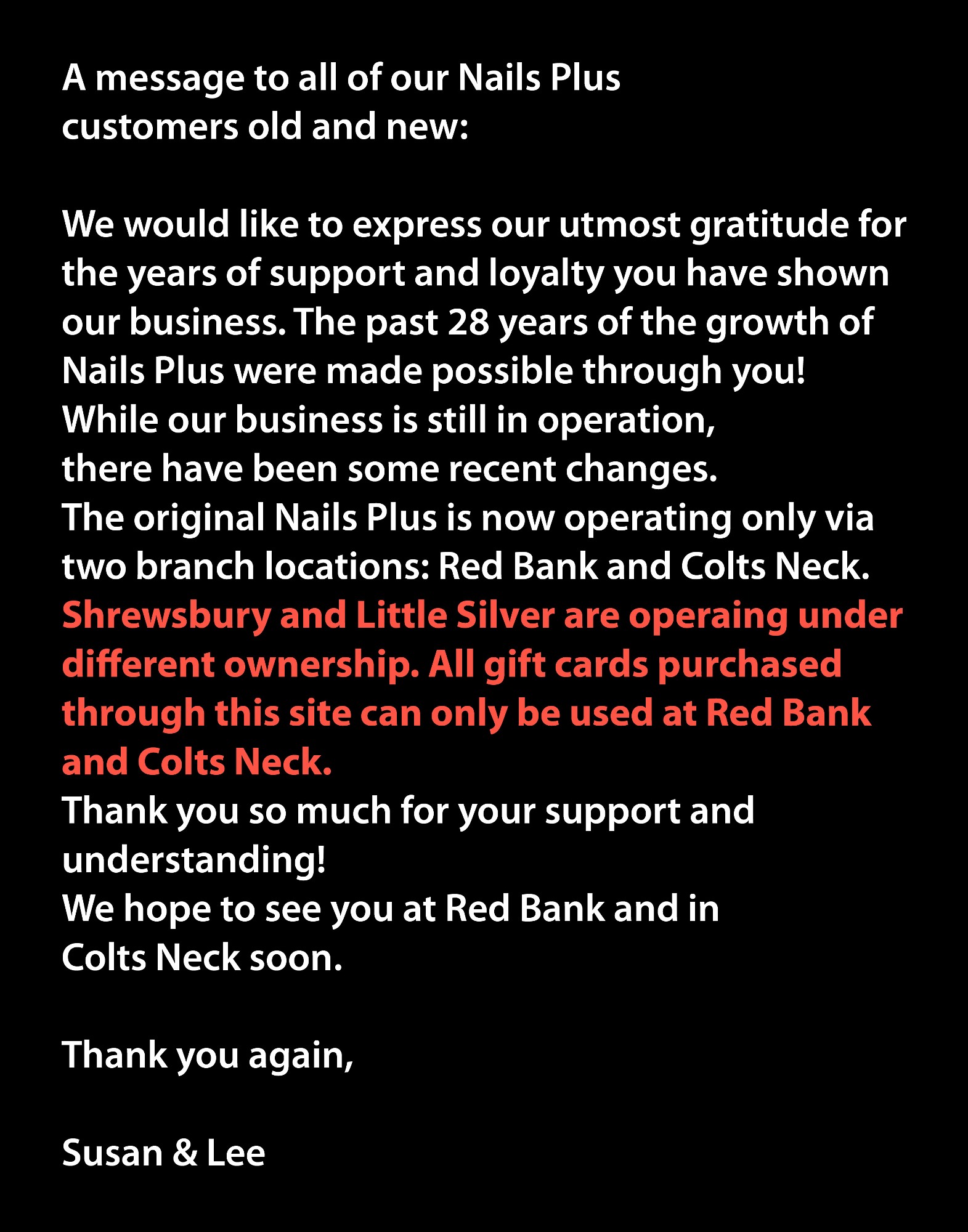
VISIT ONE OF OUR NEARBY LOCATION TODAY FOR A REJUVENATING EXPERIENCE
Red Bank
62 English Plaza
Red Bank, NJ 07701
tel. 732 530 3513
Mon to Fri: 9:30 am to 6pm
Sat: 9am to 5pm
Sun: closed
Colts Neck
340 Route 34
Colts Neck, NJ 07722
tel. 732 410 4651
Mon to Fri: 9:30 am to 6pm
Sat: 9am to 5pm
Sun: closed


